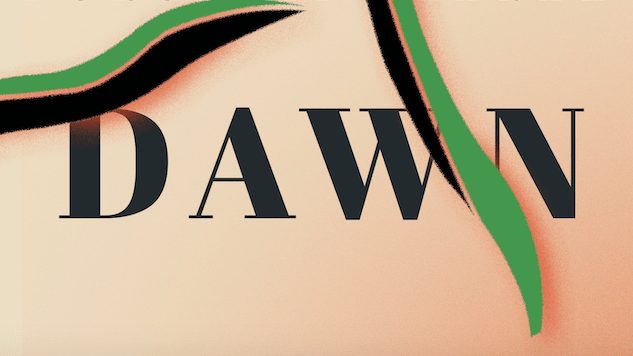North of Dawn: Nuruddin Farah Talks Migration and Combatting Extremism in His New Novel
Books Features nuruddin farah
In North of Dawn, author and professor Nuruddin Farah weaves the tale of a Somali family living in Norway. By turns introspective and expansive, the novel poses questions about the place of migrants in Western societies and self-imposed cultural isolation. But at its heart, North of Dawn is about people trying to find their place within a changing world—and the multitudes who find themselves caught between radical Islam and white supremacy.
Farah, a Somali who now divides his time between South Africa and the United States, got the idea for his novel after talking with a friend in Oslo. When his friend brought up the high number of African migrants in countries like Norway, Farah pointed out that Norway itself has a history of sending its people around the world. “We…argued back and forth [about] whether or not a country that has produced a large number of migrants, like many European countries, has the right to complain about migrants coming from somewhere else,” Farah tells Paste.
 North of Dawn follows Somali couple Mugdi and Gacalo, whose lives in Oslo are turned upside down when their son, Dhaqaneh, kills himself in a suicide attack in Mogadishu. He leaves behind a widow, Waliya, and her two teenage children, daughter Saafi and son Naciim, from a previous marriage. Before his death, Dhaqaneh asks Gacalo to ensure the three are brought to Oslo, despite his estrangement from his father. But once in Oslo, Waliya becomes deeply associated with Muslim extremists in Norway, while her children are drawn to the Mugdi and Gacalo’s secular world.
North of Dawn follows Somali couple Mugdi and Gacalo, whose lives in Oslo are turned upside down when their son, Dhaqaneh, kills himself in a suicide attack in Mogadishu. He leaves behind a widow, Waliya, and her two teenage children, daughter Saafi and son Naciim, from a previous marriage. Before his death, Dhaqaneh asks Gacalo to ensure the three are brought to Oslo, despite his estrangement from his father. But once in Oslo, Waliya becomes deeply associated with Muslim extremists in Norway, while her children are drawn to the Mugdi and Gacalo’s secular world.
Focusing on the relationships between characters, the novel explores Somali, Muslim and Norwegian identity in the 21st century. The shadow of Somalia’s 1991 collapse hangs over Mugdi and his family; while Mugdi, a former ambassador, and Gacalo have left Somalia for a cosmopolitan life in Europe, their son, who was raised in Norway, rejects that world in favor of Muslim extremism in Somalia. It’s a tension that, according to Farah, has played out in Somalia in recent decades.
“Mugdi, myself and others—we belong to a secular form of Somali-ness,” Farah says, “which comes into conflict with groups of people who are against any form of secularism.”
Waliya falls into the latter camp, resisting integration into Norwegian society and restricting her children. A former prostitute who spent multiple years in a refugee camp with her children, Waliya refuses to work outside the home and attempts to keep her children from making friends or deviating from her strict view of what Islam.
“Many Somalis arrive in Europe and continue to think they will be able to dictate to their children that the only way of life is the traditional Islamic way,” Farah explains. “Waliya is risking the affection and love between her and her children.”
The intergenerational facet of the novel is the most powerful. Although heavily influenced by their parents’ extremist view of Islam, Saafi and Naciim grapple with how to bring their new life in Norway into harmony with their faith. Saafi, who was raped while living in a refugee camp, becomes more confident with time, while Naciim, who at age 12 was told he was the head of the household, turns his back on the patriarchal vision of Islam his mother has embraced.
Where many immigrant narratives center on a Western perspective by affirming the humanity of those crossing borders, Farah delves deeper. In Naciim and Saafi, and their relationship with their grandparents, Farah offers a meditation on the responsibility we have to counter extremism in our own communities. Mugdi’s views on Somalis, including the children he sees as overly conservative upon their arrival to Oslo, are influenced by negative changes in his home country. But rather than turning away from the children as he did with Dhaqaneh, he finds points of connection with them.
Juxtaposing Dhaqaneh’s suicide bombing with far-right terrorist Anders Behring Breivik 2011 attack, Farah reveals that no corner of the world is free of extremism. But North of Dawn posits that extremism can be reversed by communities countering the hateful rhetoric on which Islamic extremism and white supremacy thrive. In some cases, however, doing so requires the safety of a foreign nation; it’s impossible to imagine Saafi and Naciim having the security they need to grow into the thoughtful young adults in a refugee camp, where their safety is always under threat.
“What would we be able to do without migration, without open borders, without the possibility of people—when things are really bad on one continent—going to another continent?” Farah asks. “Nobody wants to run away from their home if their home is in peace.”
Bridey Heing is a freelance writer based in Washington, DC. More of her work can be found here.